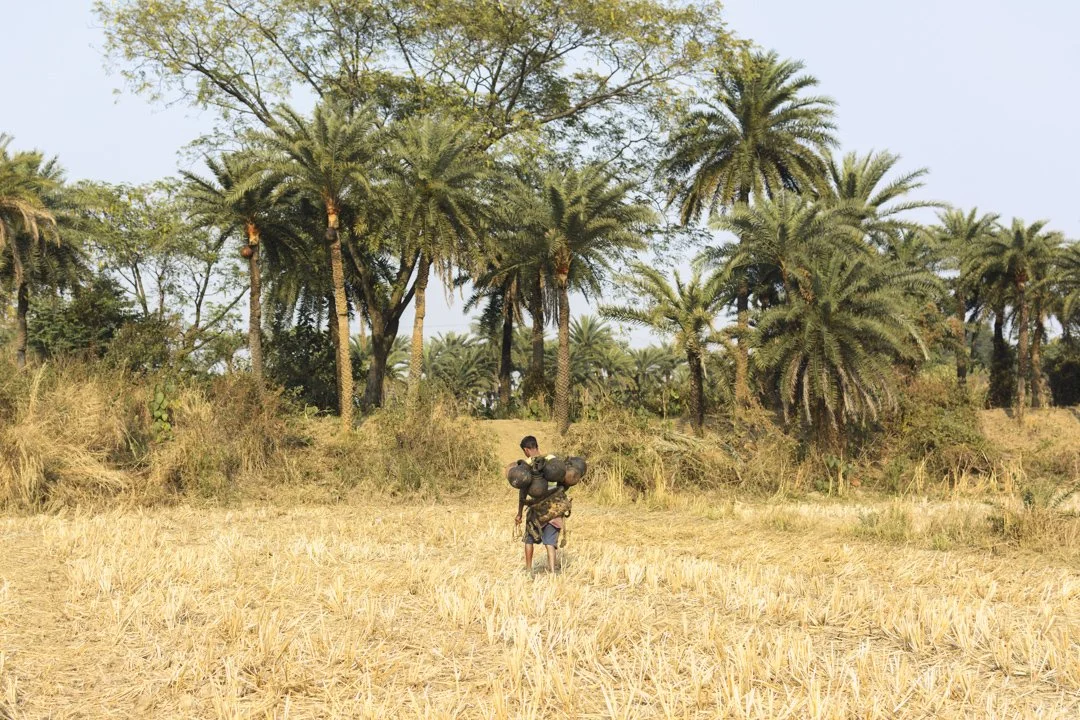The fondness of Bengalis for anything sweet has led them to discover a variety of sources for sugar. Of these, the most famous is Date Palm Sugar. Date palms grow wild in almost all of rural Bengal and the trees are tapped for their sap every winter when it is the sweetest. The bark at the top of the tree is peeled and a pot is hung below it. The sap collects in the pot overnight and early morning the collected sap is brought down and boiled thus crystallising it. Both chunks and the amber coloured molasses made from this process are high in demand among the Bengalis.
The makers of date sugar are mostly sharecroppers. Reduced agricultural activity in winter gives them an opportunity to earn through jaggery making. A typical tapper needs to tap at least a hundred trees to produce an economically viable amount of the sugar each day. Since a tree can be tapped once every three days, a tapper would need a large grove to sustain. This often leads them to travel far from home to remote areas. Once a sustainable grove is found, a tapper sets up his shack built with date leaves and continues to live there through the cold winter months in harsh and lonely conditions away from their families, producing the most favourite sweet savoury in Bengal.
BEHIND THE SWEETNESS













